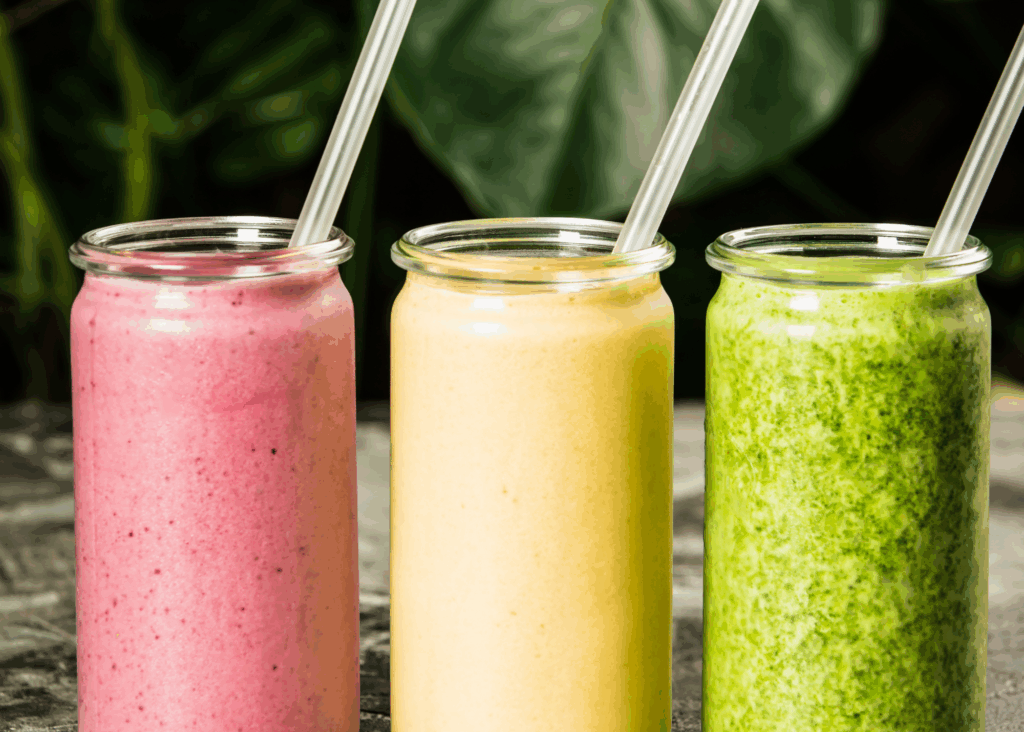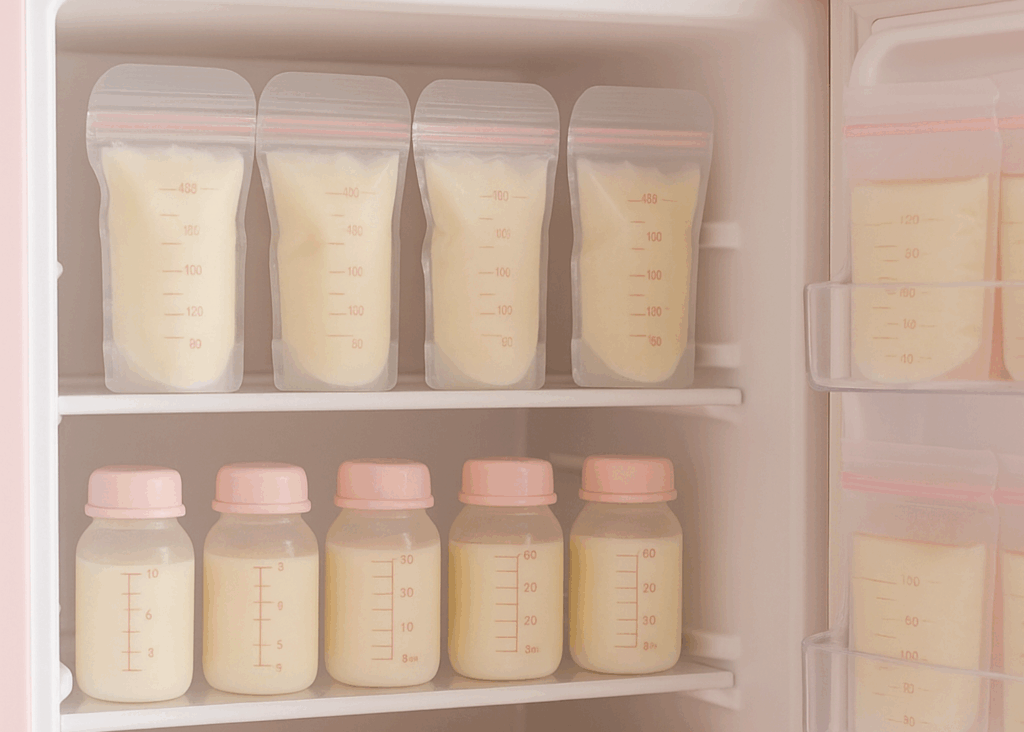


Top 10 Foods to Feed Sick Babies
When your baby is sick, feeding can feel overwhelming. They may have less appetite, a sore throat, or digestive upset, which makes it tricky to keep them nourished and hydrated. The good news is that with a few gentle, nutrient-rich foods, you can support their recovery while keeping them comfortable. Breast milk or formula should always remain the main source of nutrition for children under 12 months, but these foods can complement it and help provide extra calories, hydration, and vitamins.
Here’s a detailed guide to the top 10 foods for sick babies, including preparation tips and ways to make them more appealing.
1. Breast Milk or Formula
Why it helps: Breast milk and formula are rich in calories, hydration, and antibodies that help fight infection. They remain the most important source of nutrition for babies under 12 months. Breast milk is 88% water, and you will notice that some babies increase their nursing sessions drastically when getting over an illness. Breast milk is unique in that it can detect when a baby is sick and tailor the immune-boosting protection to help them fight illnesses!
Tips:
- Offer smaller, more frequent feeds if your baby is tired or sick.
- Keeps your baby hydrated; dehydration can make illness worse.
2. Chicken Noodle Soup
Why it helps: This classic comfort food provides fluids, electrolytes, protein, and carbohydrates, all essential when a baby is sick.
Tips:
- Use low-sodium or homemade broth. Avoid added salt.
- Cook noodles until very soft, and shred the chicken finely for easier chewing.
- We have a full chicken noodle recipe in our baby-led feeding guide at 101beforeone that shows how to prepare this comfort and nutrient-rich dish for babies six months and up.
Extra Tip: Adding a little pureed vegetable, such as carrot or zucchini, can boost vitamins and fiber.
3. Yogurt
Why it helps: Plain, unsweetened yogurt contains probiotics, protein, and calcium, which support gut health and overall nutrition. Probiotics help balance the gut microbiome, which improves not only digestion but immunity as well. A research review in 2014 found that probiotics can protect against viral infections, reduce the risk of catching the common cold, and lessen the number of symptomatic days from common colds in healthy people. (1) Yogurt is cold and smooth, which can help ease sore throats and can be more tolerable for sick babies.
Tips:
- Mix with a small amount of mashed banana for added flavor.
- Avoid flavored or sweetened yogurts – check out our full blog post on our favorite yogurt options for babies.
Do dairy products cause increased mucus production or worsen cold symptoms? Nope, this is actually a myth that has no research to support it and has been debunked. (2)
Currently, there is no scientific research demonstrating that drinking milk or eating dairy products while sick leads to increased mucus production in the airways or throat, or a worsening of cold or asthma symptoms. (3) Many people confuse the temporary, slight thickening of saliva after drinking milk with mucus. This thickening, which may coat the throat and give the perception of more mucus, does not cause the body to produce more mucus. (4)
In contrast, drinking milk (or any fluid) may speed up the recovery process, as drinking fluids is important when cold symptoms are present. For infants, ensuring adequate calories and nutrients when sick is especially important for healing and shouldn’t be limited if the child is receptive to it!
4. Eggs
Why it helps: Eggs are gentle, easy to digest, and rich in protein, choline, vitamin D, and zinc, which are all important nutrients for overcoming illness. They are quick to whip up in a multitude of ways, depending on your little one’s preference.
Preparation Tips:
- Serve scrambled or soft-boiled.
- Mix into mashed vegetables or oatmeal for added texture and nutrients.
Extra Tip: Add a tiny pinch of mild herbs, like parsley, for flavor once your baby is ready.
5. Smoothies
Why it helps: Smoothies are a great way to pack in vitamins, minerals, and calories when your baby has a low appetite. Pile your smoothies high with vitamin C-containing fruits and veggies like berries, kale, kiwi, citrus fruits, spinach, and mango for added immune support.
Tips:
- Avoid added sugar or honey (for babies under 12 months). Full added sugar blog post can be found here.
- Should not replace breast milk or formula intake.
6. Citrus Fruits
Why it helps: Citrus fruits like oranges or mandarins provide vitamin C, which supports immune function and overall recovery. Science shows that vitamin C promotes the formation of antibodies that bind to and destroy dangerous toxins, bacteria, and viruses in our bodies before they can wreak havoc, so focusing on those high vitamin C-containing fruits is a definite must. Fruits also have a high percentage of fluid, which aids in keeping your child hydrated while sick.
Tips:
- Many different citrus fruits can be served to your baby six months+. We show how to prepare and serve these fruits in our baby-led feeding guide at 101beforeone.
- If the citrus is too acidic and bothers your baby, skip these suggestions and stick to non-acidic hydrating fruits, which also provide health benefits.
7. Fruit Popsicles
Why it helps: Homemade fruit popsicles can soothe a sore throat and provide hydration in a fun way. These can be a great go-to if you are having trouble getting your little one to eat anything at all.
Tips:
- Pour into baby-safe molds and freeze.
- Offer as a cool treat to encourage fluid intake.
- If you want to buy pre-made popsicles, here are some brands we recommend:
Extra Tip: Avoid store-bought versions with added sugar.
8. Hydrating Fruits
Why it helps: Hydration is critical during any illness. Fruits with high water content, like watermelon, cantaloupe, pear, and cucumber, help keep your baby hydrated when they aren’t drinking much.
Tips:
- Serve in an appropriate size for your child, depending on their age and feeding skills. We show how to do this at 101BeforeOne.
- Mix with yogurt or oatmeal for extra nutrients.
- Grab our free Hydration Tips Guide here.
Extra Tip: Keep them chilled for a refreshing, soothing option during fever or teething.
9. Avocado
Why it helps: Avocado is soft, easy to digest, and packed with healthy fats, fiber, and vitamins that support recovery.
Tips:
- You can mix it with breast milk, formula, or yogurt for added creaminess.
Extra Tip: Add a little mashed banana to sweeten naturally and make it more appealing.
10. Oatmeal or Sweet Potato
Why it helps: Mild, soft foods like oatmeal and sweet potato provide comfort, calories, and fiber without upsetting a sensitive stomach.
Tips:
- Cook oatmeal until very soft, and mix with breast milk or formula to add calories and a smooth texture.
- Bake or steam sweet potatoes, then mash thoroughly or serve in finger food form!
11. Bonus: Cottage Cheese
Why it helps: Plain, no-salt-added cottage cheese is protein-rich and easy to digest, making it a great option for young eaters.
Tips:
- Serve plain or mix with soft fruit like peaches or pears.
- Avoid added salt or sugar. Friendship Dairies sells a no-salt-added cottage cheese option that I prefer for young eaters 6 months+.
Final Thoughts:
Feeding a sick baby doesn’t have to be stressful. Focus on hydration, gentle textures, and nutrient-rich foods. Keep offering breast milk or formula as their main source of nutrition, and introduce these complementary foods slowly, based on your baby’s appetite and tolerance.
Key reminders:
- Avoid added sugar and salt.
- Adjust texture according to your baby’s age and developmental stage.
By combining comfort, hydration, and gentle nutrition, you can help your baby recover more comfortably and make mealtime a little easier during illness!
References
Wüthrich B, Schmid A, Walther B, Sieber R. Milk consumption does not lead to mucus production or occurrence of asthma. J Am Coll Nutr. 2005 Dec;24(6 Suppl):547S-55S. doi: 10.1080/07315724.2005.10719503. PMID: 16373954.
Yan F, Polk DB. Probiotics and immune health. Curr Opin Gastroenterol. 2011;27(6):496-501. doi:10.1097/MOG.0b013e32834baa4d
Brunello Wüthrich, Alexandra Schmid, Barbara Walther & Robert Sieber (2005) Milk Consumption Does Not Lead to Mucus Production or Occurrence of Asthma, Journal of the American College of Nutrition, 24:sup6, 547S-555S, DOI: 10.1080/07315724.2005.10719503
Pinnock CB, Graham NM, Mylvaganam A, Douglas RM. Relationship between milk intake and mucus production in adult volunteers challenged with rhinovirus-2. Am Rev Respir Dis. 1990 Feb;141(2):352-6. doi: 10.1164/ajrccm/141.2.352. PMID: 2154152.
Want more? My course is a 100% evidence-based approach to starting solids in a way that encourages a healthy dietary pattern from the start.
Check out the Starting Solids 101 Course now!
Access Course Now

Cinthia Scott is a Registered Dietitian (RD) and International Board Certified Lactation Consultant (IBCLC) with over 10 years experience in the field of dietetics. Cinthia focuses on ensuring optimal nutrition in the first 1000 days of life to ensure optimal growth and development as well as set the stage for long-term health. Cindy is an author, starting solids expert, and advocate for caregivers receiving evidence based education and support surrounding breastfeeding and starting solids.
Cinthia is co-author of the 101beforeone Starting Solids Book, “101beforeone -baby-led feeding cookbook,” and is the founder and owner of The Baby Dietitian LLC which is her private practice built to provide virtual 1:1 services for caregivers surrounding infant nutrition, toddler nutrition, and breastfeeding support. Cinthia is also the creator of the Starting Solids 101 Program which provides caregivers 1:1 support from a Pediatric Dietitian on how to provide optimal nutrition from the start and create healthy eating habits that will last their whole lifetime. To work with Cinthia, you can access her services here.
Cinthia provides tons of free information for parents on her social media accounts as well.
- Instagram: @The.Baby.Dietitian
- Tiktok: @The.Baby.Dietitian
